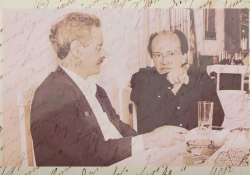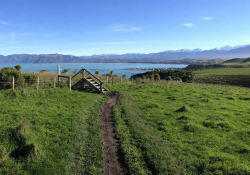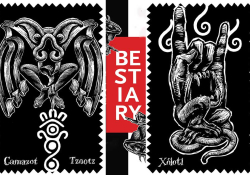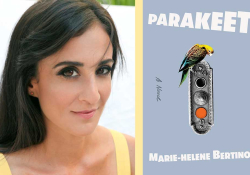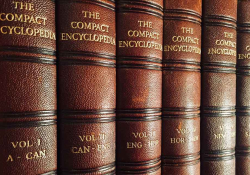The Matryoshka Dolls in My Head (an excerpt)
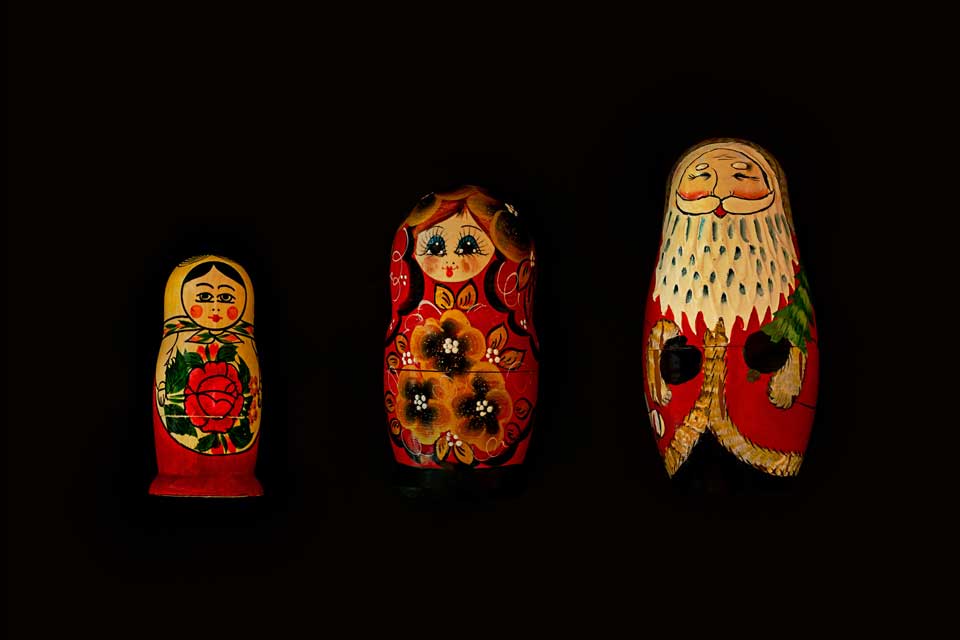
In this excerpt from Romanian political theorist and feminist philosopher Mihaela Miroiu’s memoir, Miroiu looks back to her early days in a Transylvanian village, watching her first film, and a visit to Austria.
As an idealist, I’m inclined to find people and all living things dear to me. I try not to shy away from the real world, aiming instead to find a point of reference whenever possible, and to come up with a forethought or an illusion, something to hold onto: such as layers of references, expectations and dreams, all woven together like a rag mat and placed inside pyramids of Matryoshka dolls.
Every now and then, I look back at myself with fondness. I’m looking at a little girl raised by her grandparents in a Transylvanian village during the years of the forced collectivization of agriculture, when I would share a room with my grandmother, grandfather, great-grandmother, and in wintertime also the loom as well as the lambs and chicks being born earlier than the arrival of the warm weather outside. The rudimentary sledge made by my great-grandfather from bits of board. The rubber galoshes that would fill up with mud as soon as I stepped into the nearest puddle. The rows of corn. The wheat-filled barn, the pumpkin seeds, the wool and hemp. The mice. The gadflies. The beetles. The udders of cattle. Keeping an eye out for the sheep in spring and the cattle in summer. The odors of home: hay, ash, smoked meat, jam, sour cream, coking coal, dung, daffodils, and lilies. All my love for these, and theirs for me. The Mother of God. The dialect I used to speak. The shock of leaving my world in order to move to a tight ghetto in town and end up the only peasant on the block. A squint in my left eye: four-eyes! Finding refuge in books. In maaaaany books, never quite enough though.
The joy of holding on to my mother’s hand, because she’s mum, and to dad’s, because he’s chosen me as his daughter. Getting the chance to watch my first-ever film with them: War and Peace. To cry in silence, swallowing my tears, because while beating the retreat a soldier froze to death and his dog was left behind, all alone in the world, like I feared being left alone throughout my entire childhood. A lone puppy.
To speak for the first time on a devilish black thing, equipped with a kind of lever, inside which I could hear my father’s voice. To endlessly repeat to my mother that I’m clean, because they had just purchased their first-ever washing machine and I was paralyzed with fear that they might make me climb into it and then I would have to whirl and spin in its drum next to the clothes and the grated soap used in lieu of washing powder.
To see Soviet president Khrushchev and his Romanian counterpart Dej in person, with my very own eyes.[i]
To have my feet squeezed into a pair of tight patent-leather shoes in front of the portrait of comrade Dej. I was a sort of head girl in the Communist youth organization called “Pioneers,” and all of us who were good at school were essentially punished by having to take turns standing still by the deceased president’s portrait displayed in the great hall of Primary School no. 4 in Hunedoara.
I have just moved from the countryside, where women didn’t have time for the likes of hysterics and gossip, seeing that they had to be all ears to pick up the ongoing quacks, bellowing, and bleating, not to mention the shrieks of hungry children who’d keep demanding food at all times and all-as-one.
The tiny kitchen that was ours, and only ours. Father was always away. Starched cuffs and collars. Ink stains all over the place, as I have always been quite messy, and never managed to be stylish or become a lady. My mother finding it impossible to fit in with the other stay-at-home wives on the block, all married to officers. My exasperation facing the anxieties of said housewives on the block. Mutants. Mutant women. I have just moved from the countryside, where women didn’t have time for the likes of hysterics and gossip, seeing that they had to be all ears to pick up the ongoing quacks, bellowing, and bleating, not to mention the shrieks of hungry children who’d keep demanding food at all times and all-as-one.
Up until this stage in my life, I didn’t make a clear distinction between myself and other people, and likewise, in my early childhood I didn’t differentiate between myself and the cubs of other species. I needed to spend two years in Bucharest, the village housing all the potentates of the state, to learn that I actually am something and somebody else. This was an important phase in my initiation into the fact that, although I’m not the center of the world, nobody is, I am nevertheless unique, and since nobody was born to take my place, I would realize in due course that I wasn’t actually born in vain. This is where my adventure begins. The competition with my own self, and with what I can actually take from all that is given to me, and what I can give back, in turn, from what I have taken. I cannot recall ever having imagined that I might be entitled to something just because I consented to exist on this planet.
The fact of the matter is that neither the experience of the generations I descended from nor my own history led me to believe that we could have possibly had any rights other than the one to work (and perhaps, to life and peace, as the papers of the time would have put it). A younger female friend told me that her grandmother committed suicide because she had developed Parkinson’s disease and was no longer able to use her hands. So she went to the orchard late at night, having written a note in which she explained her reasons and pleaded for forgiveness. With the last remnants of her willpower, she arranged the noose around her neck and then kicked the stool, on which she used to sit when still able to milk cows, from under her feet. Why should I be indignant, surprised, or revolted? After all, what was going on in my own head prior to my eye operation, in the event it wasn’t successful, and I would never be able to see again? Well, it wasn’t exactly a noose, but, to be honest, neither could I imagine a viable Plan B either.
There wasn’t the faintest hint of boyars, annuitants, local bigwigs, or neighborhood fat cats in my immediate or extended family.
I was brought up with the saying: Bread of your own earning tastes sweet. There wasn’t the faintest hint of boyars, annuitants, local bigwigs, or neighborhood fat cats in my immediate or extended family. This absence all along my family tree–incidentally rather hard to keep track of, seeing that the only distant memory was the cemetery where wooden crosses would decompose after about two generations–was overlaid with communism and its initiative to throw in bread without work, basically for everyone, since everybody was meant to have a job for life. Communism delivered us of those who had been enjoying privileges in the past, in order to create its own privileged class, though not for all eternity but only for as long as people would be willing to go along with the times.
How did I have fun? Well, I was harvesting beets in the fields or picking up rubbish in the IOR Park in Bucharest with my students, doing my unpaid and mandatory duty called “patriotic work,” so the Communist Party could save money and sink it into the People’s Palace.
I’m really not that surprised by my first reaction once I made it to the capital of the empire where my grandmother and great-grandmother had been born. As I was looking out for the Prater, Empress Sisi’s palace, and all and sundry, I realized that in its brazen megalomania all this reminded me of dictator Nicolae Ceauşescu’s People’s Palace in Bucharest, the second largest administrative building and the heaviest construction in the world, now serving as the seat of the Romanian Parliament. Suddenly the image of my great-grandfather and great-grandmother appeared in my mind, who would have stared at me like at a lunatic had I asked them the question:
—Well, how did you spend your free time when you were young?
Seriously, how could they have possibly spent it? Just like their parents, cleaning stables, working in coking plants and in the cornfields, to pay taxes for the imperial palaces. I would make more or less the same face in case some of my current students, born a decade or so after the fall of communism, asked me:
—So, how did you have fun on the weekends when you were young?
How did I have fun? Well, I was harvesting beets in the fields or picking up rubbish in the IOR Park in Bucharest with my students, doing my unpaid and mandatory duty called “patriotic work,” so the Communist Party could save money and sink it into the People’s Palace.
Bucharest
Translation from the Romanian
Editorial note: From Cu mintea mea de femeie (Bucharest: Cartea Românescă, 2017), copyright © 2017 by Mihaela Miroiu. English translation copyright © 2019 by Jozefina Komporaly.
[i] Gheorghe Gheorghiu-Dej (1901–1965) was general secretary of the Romanian Communist Party and the first Communist leader of Romania from 1947 to 1965.
